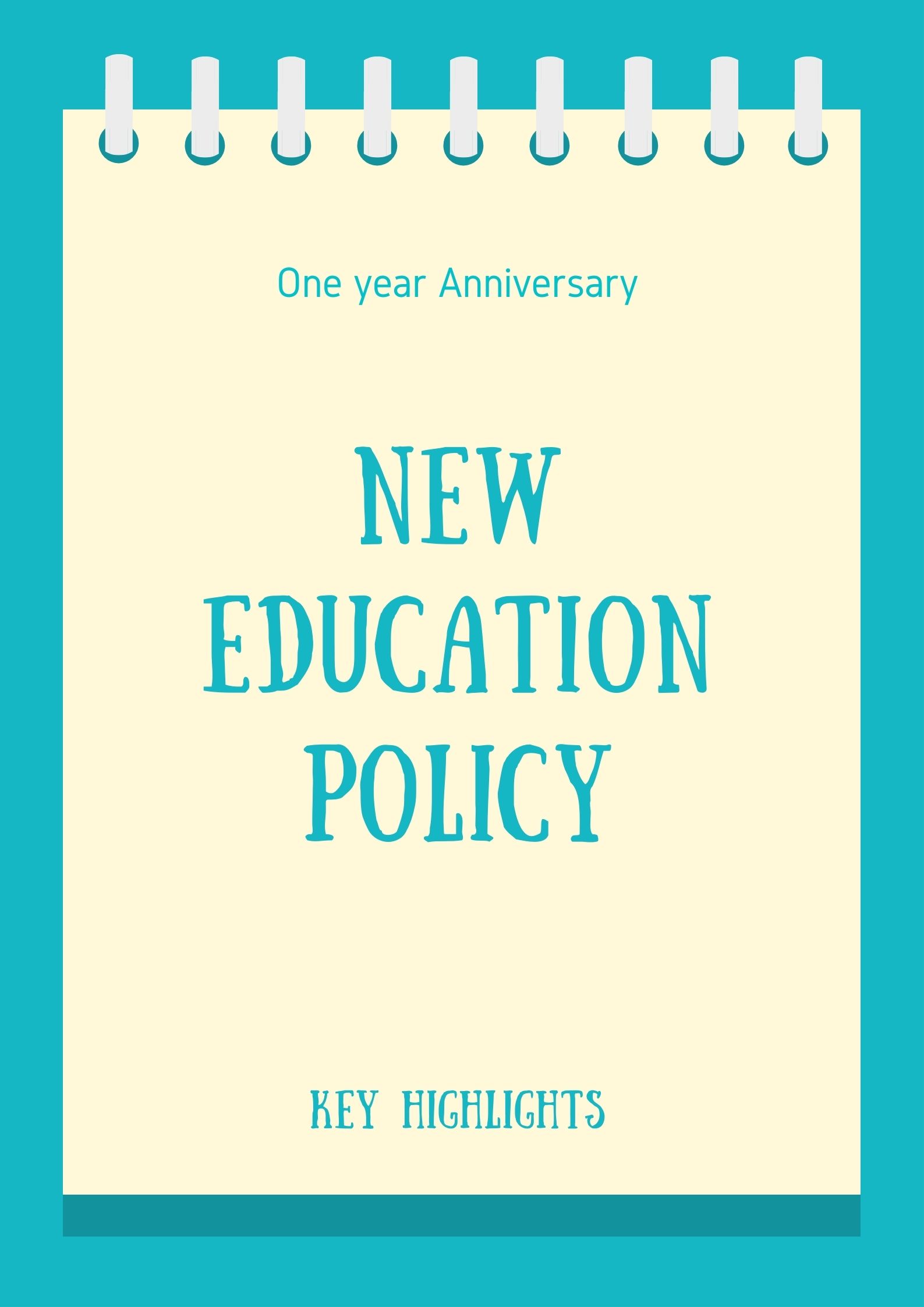One year to New Education Policy 2020 - What has changed?
July 29th, 2021 marked the 1-year completion of the New Education Policy. NEP 2020 was changed last year after 34 years. It provides a comprehensive framework for the development of education in India. Foreseeing the deep-rooted after-effects of the Covid-19 pandemic on India’s education, the NEP was introduced to revamp the education sector. The NEP aimed at making “India a global knowledge superpower”
This unsettled sector with high percentages of dropouts and lack of access to school education for different sectors needed a change. Hence, the reform was much required.
Key Highlights of NEP 2020
One of the key highlights of the policy was the inclusion of early childhood education. With the cognitive brain development of children occurring before the age of 6, it is important for children to have early access to education. The right to education for children now starts at the age of 3. The NEP was one step forward to the growth of India as it focuses more on vocational training rather than exams and marks. The policy aims to increase the Gross Enrolment Ratio with respect to both school and college education including vocational education from 26.3% to 50% by 2035. Another notable clause is to teach students in the local language till at least the 5th grade, stressing upon the importance of the mother tongue.
However, the major part of the reforms revolves around higher education. The projections say that by 2040, all higher education institutions (HEIs) shall become multidisciplinary institutions, each of which to have 3,000 or more students. Additionally, the NEP replaced the regulatory bodies such as UGC(University Grants Commission) and AICTE(All India Council for Technical Education) with the HECI(Higher Education Commission of India). This definitely was a smart move to have an efficient and structured single regulatory body to monitor the whole education system.
One year to NEP :
India’s honorable Prime Minister addressed the Nation on the 1 year anniversary of the NEP. Through video conferencing, he congratulated the people of India on the completion of one year of the policy. He also said more initiatives will be taken to improve the education available in the nation. The policy is a mission and how far it will go will depend upon the kind of education we are giving to our people.
He said over the past year everyone including the youth, teachers, policymakers have worked hard in enforcing the NEP. The policy should give equal access to quality education for all learners, regardless of social and economic background.
Key Highlights
1. Since the poor, people in remote regions, Dalits, and other backward classes generally are deprived of higher education, according to the new initiatives, engineering courses will now be taught in 11 regional languages. To make it feasible a tool is developed which will translate engineering courses into 11 different languages. Out of 11, the 5 languages are Hindi, Marathi, Bangla, Tamil, and Telugu. This will help the underprivileged get a quality education.
2. The DIKSHA (National Digital Infrastructure for Teachers) portal was launched as a National Digital infrastructure for teachers. It enables teachers to learn, train and certify themselves through the assessment resources available on the portal. It has got over 2300 crore hits in the past year which shows the usefulness of the policy. It even gets 5000 crore hits every day.
3. On the occasion of the one-year anniversary of the NEP, the PM said, the Academic bank of Credit based system, which will be a virtual store of students’ academic credits. The Academic Bank of Credit will be a flexible system that will give multiple entries and exit options to the students. They can skip a stream anytime as per their interest and comfort.
4. Keeping in mind that India has over 3 lakh students who need sign language, the Prime minister announced Sign language is being treated as a standalone, distinguished subject. This will give a boost to the Indian sign language and will help the disabled.
5. Under the Vidya Prakash Program, playschools will be accessible to children and parents of remote areas. PM Modi said nobody should be deprived of education, be it rich or poor.
Conclusion
The sole purpose of the NEP was to change the education sector of India. The youth will define the future of India and is in dire need of quality and equitable education. The NEP is one step on the ladder to achieve the same. With steady reforms and everyday progress, India will soon be a transformed and educated nation.
